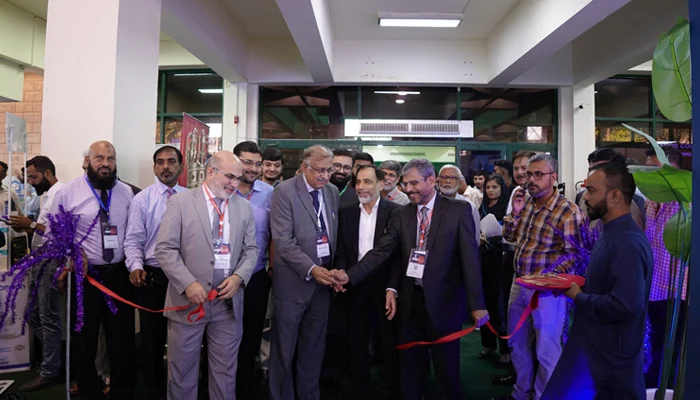At the 27th Biennial Pakistan Islamic Medical Association (PIMA) Central Convention, experts emphasized that disease prevention is the most viable solution to combat Pakistan’s rising healthcare costs and increasing disease burden. With the growing prevalence of both infectious and non-communicable diseases (NCDs), including cancer and genetic disorders, quality medical care is becoming unaffordable for a large portion of the population.
During the event’s inaugural session, local and international health experts highlighted that with out-of-pocket expenses escalating, particularly for private healthcare, the focus must shift to prevention. They underscored that preventive measures such as vaccination programs, health education campaigns, and early detection screenings for conditions like diabetes and cancer are essential for controlling disease spread and improving public health.
The experts also stressed the need for improved access to clean drinking water and proper sanitation, which are crucial for preventing waterborne diseases like cholera and diarrhoea. Additionally, infection control in healthcare settings was highlighted as a critical step to reduce the spread of infections.
The two-day convention, held at the Karachi Expo Centre, brought together healthcare professionals, scientists, medical students, and industry leaders from Pakistan and abroad.
American-Pakistani neurologist Prof Teepu Siddique warned of the increasing burden of genetic and lifestyle diseases in Pakistan. He called the situation “unbearable” and urged that prevention, given the high cost of treatment, is the only realistic solution. “Preventable diseases like diabetes, hypertension, cardiovascular diseases, and diarrhoea can be avoided with simple lifestyle changes, access to clean drinking water, and timely vaccinations. Many lives could be saved with proper immunization programs, which are available free for children,” said Prof Siddique.
He advised adopting a healthier lifestyle by consuming more vegetables and fruits while reducing meat and oil intake. He also recommended eating two meals a day and sharing the third with someone in need, emphasizing the physical and mental benefits of such habits.
Prof Tariq Rafi, Chairman of the Sindh Higher Education Commission, expressed concern over the lack of empathy in Pakistan’s healthcare system, despite the country producing technically competent doctors. He cited the ‘pharma-physician nexus’ as a major issue, where unethical relationships between pharmaceutical companies and doctors compromise patient care. He called for bioethics and literature to be included in medical education to foster greater empathy and humanity among future doctors.
Newly appointed PIMA President, Prof Atif Hafeez, echoed the need for prioritizing prevention over treatment, pointing out that most of Pakistan’s population cannot afford healthcare. “Simple precautionary measures, lifestyle changes, and preventive interventions can stop many diseases from developing in the first place,” he said, reinforcing the convention’s core message.
Islamic scholar Khalil ur Rehman Chishti, speaking from the U.S., urged attendees to seek knowledge in both religious and scientific fields. He emphasized that many historical Islamic scholars excelled in various sciences alongside their mastery of religious texts.
In a session addressing the relationship between physicians and the pharmaceutical industry, Asim Rauf, CEO of the Drug Regulatory Authority of Pakistan (Drap), warned of strict actions against pharmaceutical companies engaged in unethical marketing practices. He announced that Drap is now requiring companies to disclose their spending, and violators may face legal consequences, including law enforcement intervention.
Haroon Qasim, former chairman of the Pakistan Pharmaceutical Manufacturers’ Association (PPMA), praised PIMA’s guidelines on physician-pharma relations as a move toward greater transparency.
In a broader assessment of Pakistan’s healthcare system, former Special Assistant to the Prime Minister on Health, Dr. Zafar Mirza, pointed out that only 1% of the country’s GDP is allocated to healthcare—far below the recommended 5%. “Primary healthcare should be part of the universal health coverage program,” Dr. Mirza said, noting that 70-80% of out-of-pocket expenses are spent on primary healthcare.
The PIMA convention will continue today, featuring sessions on topics like diabetes, orthopaedics, artificial intelligence in healthcare, neurology, and ethical issues in the medical field.
PIMAConvention #DiseasePrevention #HealthcareCosts #Vaccinations #HealthEducation #CleanWater #PakistanHealthcare




+ There are no comments
Add yours